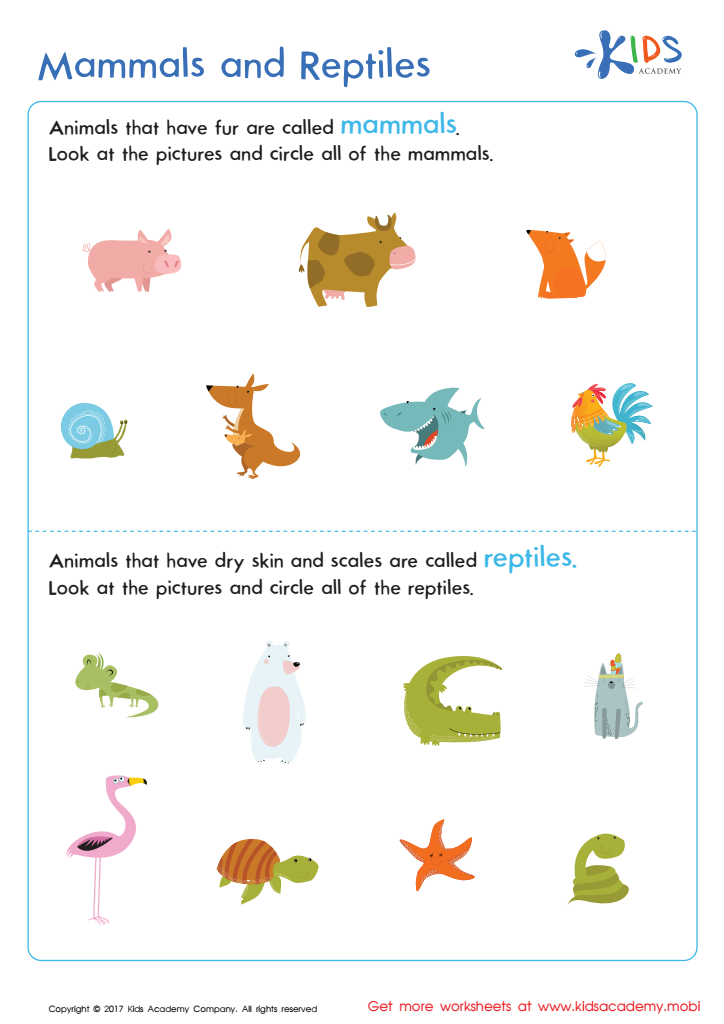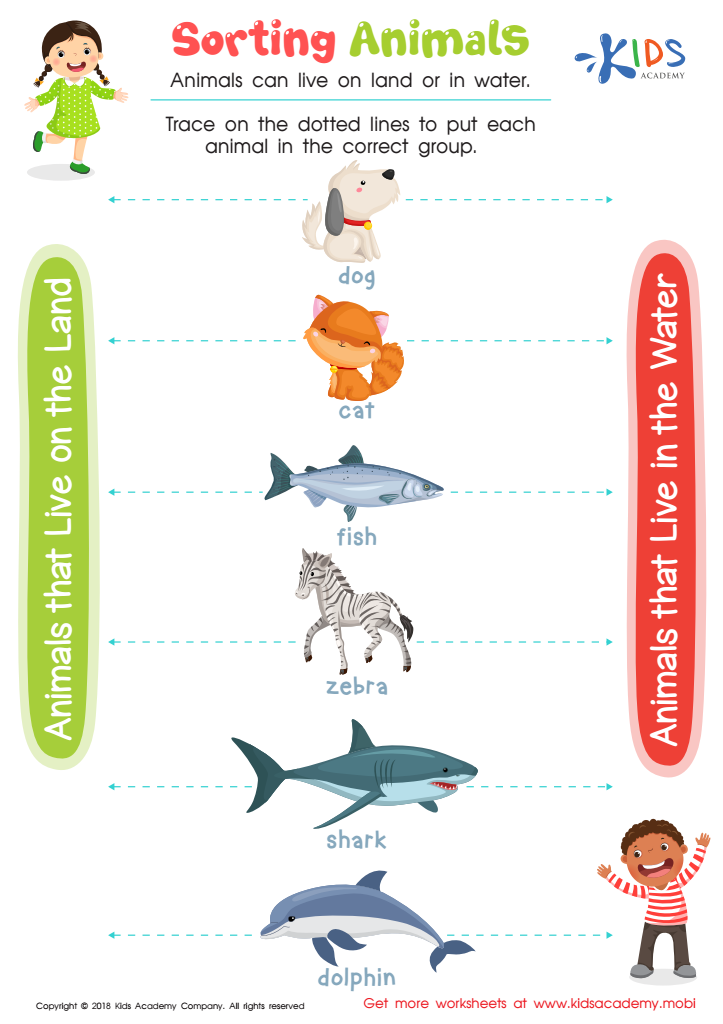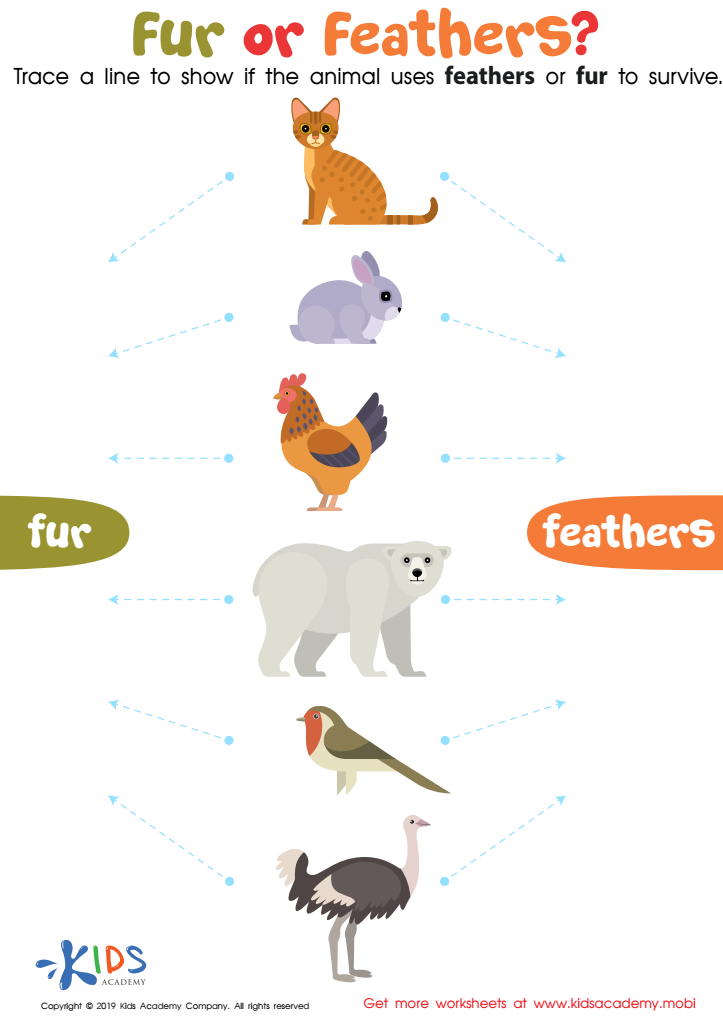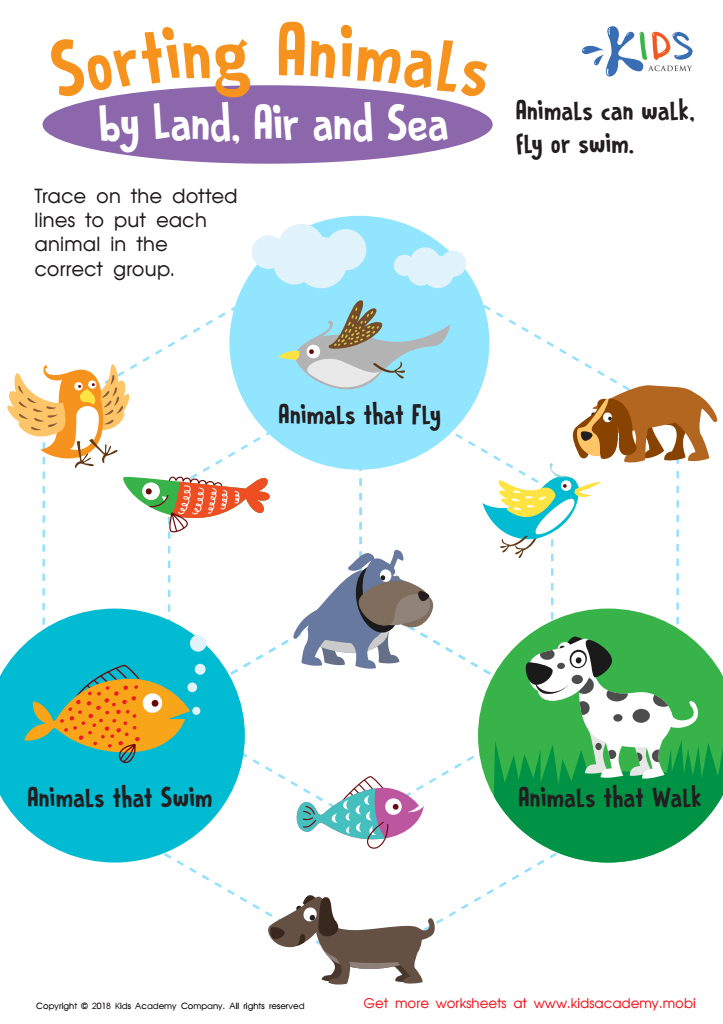Animal Classification Science Worksheets for Ages 3-6
4 filtered results
-
From - To
Discover our engaging Animal Classification Science Worksheets designed specifically for children ages 3-6! Introducing young learners to the fascinating world of animals, these worksheets provide fun and interactive activities that foster curiosity and critical thinking. Through colorful illustrations and easy-to-understand concepts, children will explore different animal groups, such as mammals, reptiles, and birds, while developing essential skills like sorting, matching, and basic reasoning. Our resources encourage hands-on learning and promote creativity, making science accessible and enjoyable for early learners. Perfect for home or classroom use, our worksheets support the foundational knowledge children need to understand the diverse animal kingdom. Start your adventure today!


Mammals and Reptiles Worksheet


Sorting Animals Worksheet


Fur or Feathers? Worksheet


Sorting Animals by Land, Air and Sea Worksheet
Animal classification science is a vital aspect of early childhood education, particularly for children aged 3-6. Parents and teachers should care about this subject as it stimulates curiosity and fosters a love for nature in young learners. By introducing kids to the diverse world of animals, they develop crucial critical thinking and observational skills. Learning to classify animals—such as mammals, birds, reptiles, and amphibians—helps children understand patterns, similarities, and differences, which enhances their cognitive development.
Additionally, animal classification encourages language development. Children learn new vocabulary words related to animals and their characteristics, promoting literacy skills. This foundational knowledge also lays the groundwork for ecological awareness, inspiring a sense of responsibility towards wildlife and the environment.
Furthermore, engaging in activities related to animal classification encourages hands-on exploration and creative play, essential components of early education. Through activities like sorting animals or learning about their habitats, children enhance social skills by collaborating with peers.
In summary, animal classification science is crucial for nurturing young minds. It enriches their learning experience, fosters curiosity about the natural world, and cultivates a sense of empathy towards living creatures, forming a strong base for their future education and development.

 Assign to My Students
Assign to My Students









.jpg)









